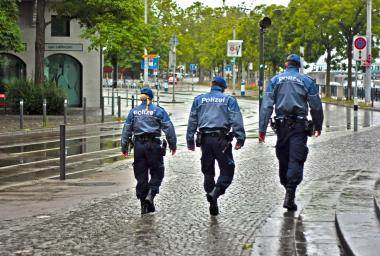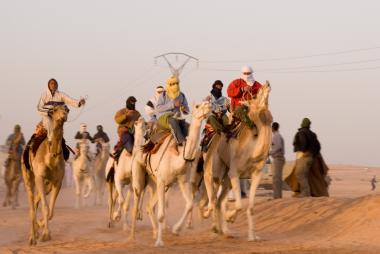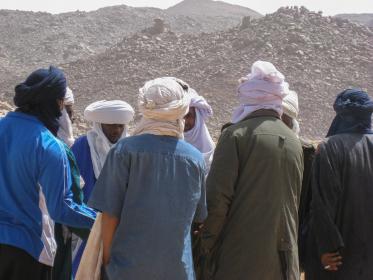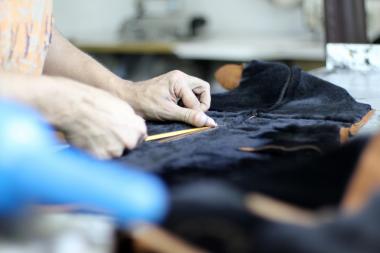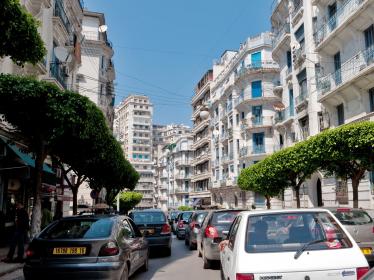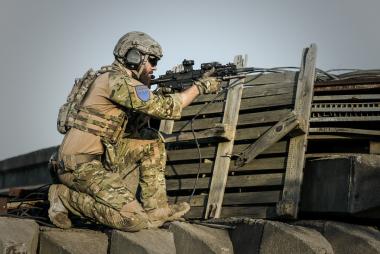TURKISH CLOTHING MANUFACTURERS RELY ON DESIGN AND OWN BRANDS
- Companies want stay away from cheap contract manufacturing
Istanbul (GTAI) - The highly export-oriented Turkish textile and clothing industry wants to increase its competitiveness on world markets by investing in design. The hitherto widespread contract manufacturing for foreign brand manufacturers is losing importance in favor of own collections. With a law from 2016, the Turkish state explicitly promotes investment in design.
The Turkish textile and clothing industry is going through a structural change: While the garment industry was once particularly interesting because of the comparatively low labor costs for contract manufacturing orders from Western companies, Turkish manufacturers are increasingly working as designers for international clients. In addition to well-known Turkish fashion manufacturers such as Ipekyol, Vakko and Zorluteks, more and more Turkish textile companies are also manufacturing and marketing their own brands. In parallel, they are expanding their online sales network. For example, Ipekyol intends to close half of its stores in the next 20 years.
In order to meet the changing demand of foreign cooperation partners, Turkish clothing companies are increasingly investing in research and development projects, as the Turkish business magazine Ekonomist reports.
For example, Hassan Tekstil (http://www.hassan.com.tr) based in Istanbul, founded in 2017, has a 45-member R & D department. The company, whose revenues of USD 232 mio in 2016 were generated 35 percent from exports, plans to spend1.5 percent of its revenue on R & D activities.
Another company that is increasingly investing in R & D and design is TYH Tekstil (http://www.tyh.com.tr) in Istanbul. This purely export-oriented company with a turnover of around USD 100 mio (2016) employs 15 fashion experts. About 1.5 to 2 percent of sales, which will reach around USD 130 mio in 2017, will be used for design projects and the development of collections, according to the Economist's report. In addition to contract manufacturing for well-known international brands such as Gant and COS, TYH Tekstil also developed its own brand Roqa for women's outerwear. Meanwhile, 20 to 25 percent of exports are from the supply of private label products.
Innovative workwear for security forces
According to Economist, another manufacturer with increasing R & D activities is Narkonteks (http://www.narkonteks.com) in Izmir. This company, which does not produces for international companies only, produces also goods under its own brand "Blackspade". Narkonteks also supplies customers in the Netherlands with technical textiles for security personnel. The manufacturer employs 30 engineers for its R & D activities. Of the targeted sales of TL 100 mio in 2017, 1.5 percent will be spent on R & D activities.
In 2016 Narkonteks generated around TL 80 mio. (1 Euro = 4.50 TL). The company Farb Textile (http://www.farbetextile.com) in Izmir, which sews for European fashion companies such as Bestseller, Inditex and Mango, emphasizes increased design activities also, according to Economist. About 60 percent of the production are own brands. The turnover of TL 100 mio (2016), should be increased to TL 130 mio.
One of the larger R & D investors is the clothing manufacturer Taypa Tekstil in Istanbul (http://www.taypa.com.tr) with a turnover of EUR 100 million, which exports about 80 percent of its production. The parent company TAy Group, which supplies large fashion houses such as Levis, Inditex and Tommy Hilfiger, uses 5 percent of its revenue for research and innovation projects and employs 25 designers, writes the magazine Ekonomist. The share of own brands in sales of currently 21 percent is to be increased to 50 percent in the foreseeable future.
Taypa invests in major project in Algeria
In addition to the existing production in Egypt Taypa Tekstil manufactures in Serbia and Algeria. In a clothing factory in Kraljevo, Serbia, EUR 35 mio should be invested over the next five years. A large-scale project called "TayalSPA" is being planned in Algeria for the construction of an integrated textile and clothing factory in the Sidi Khetab industrial zone in the province of Relizane. According to Taypa CEO Burak Karaarslan, quoted in the business paper "Dünya", this project, with an support of 50 percent by the Algerian government will receive investments totaling USD 2 billion in three phases until 2023.
USD 800 mio will be invested in the recently started initial construction phase. The company will start with yarn production first. Thereafter, from the end of 2018, the production of denim and other fabrics will commence. After completion of the first phase, the annual production will reach 30 million meters of denim and non-denim fabrics, 14 million meters of fabrics for shirts, 3,200 tons of knitwear and 30 million pieces of ready-made garments.
Government encourages investment in research and development
The Turkish state has been promoting investments in design since 2016: By Law No. 6676 of February16th 2016 (Government Gazette "Resmi Gazete" No. 29636 of 26.02.16) amending Law No. 5746 of 28.02.08 on the promotion R & D activities, in contrast to the previous practice, investment in design projects were concluded in the government support. Thus, companies that employ at least 15 people (previously 30) in the R & D sector can benefit from tax and customs privileges. Imported products for research projects are exempt from import duties.
Comprehensive support measures in the form of project-based grants for the marketing of Turkish brands abroad also include Regulation No. 2016/1 of the Turkish Monetary Credit and Coordination Council, which was announced in the Official Gazette No. 29898 of November 24th 2016. The implementation of subsidies is the responsibility of the Ministry of Economy.
According to figures from the Ministry of Science, Industry and Technology, there are a total of 38 R & D and 29 design centers nationwide in the textile and clothing industry.
Germany is most important target market
Turkey is a major exporter of textiles and clothing. According to official statistics, the country exported USD 24.3 billion worth of textiles and clothing in 2016 (including USD 16.7 billion in ready-to-wear articles). The export association IHKIB is targeting USD 60 billion in ready-to-wear exports in 2023. In apparel, Germany is the most important customer with a share of 18.8 percent. For textiles and textile raw materials, the country is the fourth largest market for Turkish exporters with 5 percent.
| Year | Export | Import |
|---|---|---|
| 2014 | 18,484.6 | 3,062.4 |
| 2015 | 16,756.3 | 2,846.9 |
| 2016 | 16,739.3 | 2,690.7 |
Source: Export Association IHKIB; Turkish Ministry of Economy
| Year | Export | Import |
|---|---|---|
| 2014 | 8,535.9 | 9,172.9 |
| 2015 | 7,590.8 | 8,270.4 |
| 2016 | 7,568.8 | 8,171.0 |
Source: IHKIB; Ministry of Economy
| 2015 | 2016 | Share 2016 (%) | |
|---|---|---|---|
| Total | 16,756.3 | 16,739.3 | 100.0 |
| Germany | 3,156.4 | 3,139.9 | 18.8 |
| United Kingdom | 2,187.2 | 2,015.1 | 12.0 |
| Spain | 1,666.0 | 1,738.8 | 10.4 |
| France | 871.3 | 837.2 | 5.0 |
| Netherlands | 803.1 | 774.9 | 4.6 |
| Italy | 592.4 | 610.9 | 3.6 |
| Irak | 741.1 | 558.9 | 3.3 |
| Polen | 445.6 | 556.1 | 3.3 |
| USA | 493.2 | 533.6 | 3.2 |
| Denmark | 401.0 | 422.3 | 2.5 |
Source: IHKIB; Ministry of Economy
| 2015 | 2016 | Share 2016 (%) | |
|---|---|---|---|
| Total | 7,590.8 | 7,568.8 | 100 |
| Italy | 748.9 | 729.5 | 9.6 |
| Bulgaria | 309.6 | 598.1 | 7.9 |
| Iran | 319.2 | 387.9 | 5.1 |
| Germany | 384.4 | 380.7 | 5.0 |
| USA | 346.1 | 313.1 | 4.1 |
| United Kingdom | 330.5 | 303.7 | 4.0 |
| Spain | 251.2 | 284.9 | 3.8 |
| Romania | 285.7 | 278.2 | 3.7 |
| Polen | 269.1 | 275.1 | 3.6 |
| Egypt | 246.7 | 225.0 | 3.0 |
Source: IHKIB; Ministry of Economy



